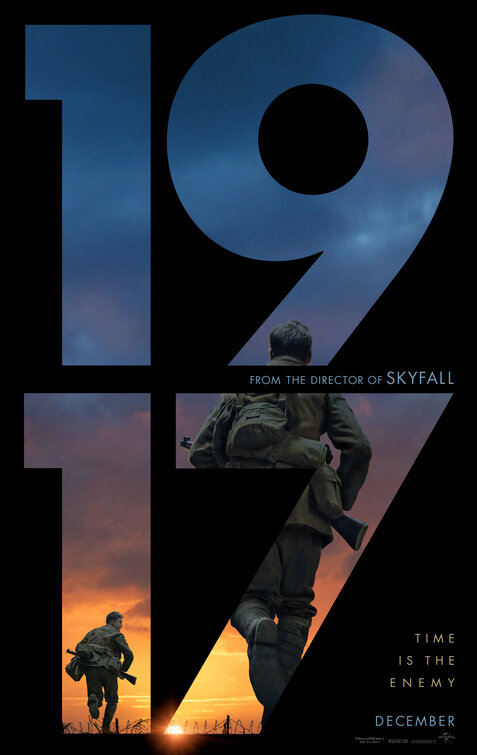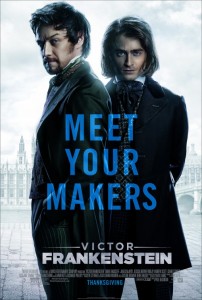Posts Tagged ‘Andrew Scott’
Everything is Different Now
All of Us Strangers

Director: Andrew Haigh
Cast: Andrew Scott, Paul Mescal, Claire Foy, Jamie Bell
Running Time: 1 hour and 45 minutes
Film Rating: 8 out of 10
45 Years director Andrew Haigh perfectly adapts the Japanese novel Strangers written by the late writer Taichi Yamada, originally published in 1987 into a superb contemporary British film retitled All of Us Strangers, featuring a lonely screenwriter Adam who psychologically has to relive the trauma of his parents death, played by Jamie Bell (Billy Elliot) and Claire Foy (First Man, Women Talking), when he meets a gorgeous yet troubled young man Harry in an isolated apartment building in modern day London.
Adam wonderfully played by Andrew Scott (1917, Spectre) in his first ever leading role, encapsulates all the trauma, isolation, desire and loneliness of a middle aged single gay man as he falls in love fleetingly with the sexy hunk Harry played with mesmerizing screen presence by Oscar nominee Paul Mescal (Aftersun).
In a bizarre emotional twist, All of Us Strangers features a grown up Adam confronting his late parents in some intimate scenes in which he comes out as gay to his mother and tries desperately to form an emotional bond with his father. Adam’s parents were conventional people in 1980’s England who died before they had a chance to watch their only son grow up and forge his own sexual identity.
Issues of prejudice, fear and loneliness pervade Andrew Haigh’s slow burning tale of one man’s excruciating emotional journey of coming to terms with childhood trauma, triggered by his abundant desire for Harry, a beautiful whiff of a soul, that glimmers on the edges of Adam’s existence long enough for desire to linger and short enough to eliminate any longevity.
Similar to director Tom Ford’s A Single Man, but certainly not as stylish, Andrew Haigh delivers a remarkably interesting and deceptive film about gay love, acceptance and remorse as Adam takes the audience on a poignant romantic journey cut short by his own desire to reconnect with his shattered past.

All of Us Strangers is a slow burning tale about a gay man’s search for his elusive emotional centre in an isolating metropolis while he is continually taunted by the past and haunted by recent desire.
This very art house love story is both fascinating and at times tricky, but it will be sure to pull audiences in to a complex love story with the past and with a future in which everything is different now.
All of Us Strangers gets a film rating of 8 out of 10 and see it for Paul Mescal, who is amazing. Recommended for a niche audience, but beautifully acted with a catchy 1980’s soundtrack.
The Intimacy of War
1917

Director: Sam Mendes
Cast: Dean-Charles Chapman, George McKay, Daniel Mays, Colin Firth, Benedict Cumberbatch, Andrew Scott, Mark Strong, Claire Duburcq, Richard Madden
After being entangled with the Bond franchise and directing two films specifically Skyfall and Spectre, director Sam Mendes returns to a more intimate yet visually astounding portrait of war in the spectacular film 1917.
1917 is a major cinematic achievement as the entire film is done in one shot echoing Joe Wright’s astounding directing achievement in his World War Two drama Atonement. Mendes does something better. He directs 1917 from the point of view of two soldiers Lance Corporal Blake played by Dean-Charles Chapman (Blinded by the Light) and Lance Corporal Schofield played by George Mackay (Captain Fantastic, Pride).
Set in less than a twenty-four hour period on the 6th April 1917, this incredible film follows the terrorizing journey of two young British soldiers who are tasked with delivering a message deep in enemy territory that will prevent 1,600 men from walking into a deadly trapped set by the Germans in Northern France.
What makes 1917 so utterly riveting is not so much the acting as the visual interpretation of this harrowing journey beautifully photographed by Oscar winning cinematographer Roger Deakins (Blade Runner: 2049) with a haunting original score by Thomas Newman.
1917 is the reason to still watch films in the cinema – it is absolutely perfect and as war films go, this is one of the finest multi-layered interpretation of trench warfare ever conceived on film. Sam Mendes does a sterling job in memory of his Grandfather who fought in World War One.

1917 is a masterpiece of film making, poignant, riveting and epic, a massive landscape punctuated by the most intimate and heart wrenching scenes especially the night sequence in a burnt out French Village which has a fiery backdrop or the spectacular river sequence which eventually leads to the final scene which is equally explosive, while portraying all the intimacies and horrors of War.
With brief scenes by supporting actors including Oscar winner Colin Firth (The King’s Speech) and Oscar Nominee Benedict Cumberbatch (The Imitation Game), 1917 belongs to the two relatively unknown young actors Dean-Charles Chapman and George Mackay, who betray all the horror, devastation and exhaustion of trench warfare combined with the nonchalance of killing.
1917 is an incisive portrait of courage and bravery and of men finding their compassion while being tested under the most brutal circumstances. Everyone should watch this film. Sam Mendes has achieved his cinematic masterpiece.
Cinematically and historically, 1917 is highly recommended viewing and gets a film rating of 9.5 out of 10. Experience this film in a cinema. It’s breath taking.
Time is on our Side
Alice Through the Looking Glass
Director: James Bobin
Cast: Mia Waskowska, Johnny Depp, Anne Hathaway, Helena Bonham Carter, Sacha Baron Cohen, Lindsay Duncan, Rhys Ifans, Stephen Fry, Timothy Spall, Michael Sheen, Richard Armitage, Andrew Scott, Alan Rickman
Contrary to popular belief the author of Alice Through the Looking Glass was not high on drugs although the latest film version by James Bobin seems to suggest otherwise. Victorian author Lewis Carroll was prone to doses of Laudanum but certainly not to hallucinations due to any mind altering drugs. Carroll whose real name was Charles Lutwidge Dawson did hang out with the Pre-Raphaelites and obviously possessed a vivid imagination.
Following the immense success of director Tim Burton’s Alice in Wonderland in 2010, Alice Through the Looking Glass fortunately reassembles the same cast with a much larger part for Johnny Depp as the Mad Hatter.
Additions to the new film, include British comedian Sacha Baron Cohen (Hugo, Borat, The Dictator) as Father Time and Rhys Ifans (Notting Hill) as the misplaced father of the Mad Hatter, Zanik Hightopp.
Mia Wasikowska reprises her role as Alice Kingsleigh and Lindsay Duncan (Birdman) stars as her mother Helen Kingsleigh.
Visually, Alice Though the Looking Glass is a real treat, a sublime and whimsical journey into a fantasy world in which Alice must travel through time and a looking glass and not only battle Father Time but the evil Red Queen of Hearts, wonderfully played again by Helena Bonham Carter.
This time the evil Queen seeks vengeance upon her sister Mirana, played with virginal innocence by Anne Hathaway, plunging Wonderland into chaos as the Queen of Hearts against the warnings of Father Time, confronts a past version of herself, a jealous little girl who was blamed for her sister’s naughty tricks of stealing tarts.
Whilst Alice Through The looking Glass will certainly appeal to a younger female audience, its themes are certainly of an adult nature – never regret the past, never try and take revenge on your family and most importantly always strive for what is your rightful inheritance. Mia Wasikowa is utterly believable as the headstrong Alice who in the prologue of the film is battling to save her late father’s ship from being taken away by greedy Victorian creditors.
Alice Through the Looking Glass, despite some big names in the cast is a brilliant ensemble piece, beautifully told and superbly directed by James Bobin under the guidance of Tim Burton.
Naturally Depp is completely whacky and delightful as the incorrigible mad hatter, but it’s really Sacha Baron Cohen who steals the show as the ubiquitous Father Time who proves that time is really on our side, despite the proverbial warning.
This rewarding sequel is fun, visually fantastic and highly recommended viewing, a whimsical journey through the looking glass into a parallel universe in which time paradoxically becomes an embodiment of both past regrets and future reconciliations.
The Lazarus Conversion
Victor Frankenstein
Director: Paul McGuigan
Cast: James McAvoy, Daniel Radcliffe, Freddie Fox, Charles Dance, Jessica Brown Findlay, Andrew Scott, Bronson Webb, Callum Turner, Daniel Mays
Lovers of the Victorian Gothic should watch the brilliant combination of James McAvoy (Last King of Scotland, Atonement) and Daniel Radcliffe (Kill Your Darlings) as the budding medical duo, Frankenstein and his faithful assistant Igor in Scottish director Paul McGuigan’s period thriller Victor Frankenstein.
The action starts off in the outskirts of 19th century Victorian London at Barnaby’s Circus where Dr Frankenstein first glimpses the nameless hunchback as a circus clown, cruelly treated and vilified, until a moment in the performance when the beautiful trapeze artist Lorelei falls off her swing above a crowd of shocked spectators. Naturally Frankenstein and the hunchback rush to her rescue.
The delusional Frankenstein assists Igor in escaping the circus and brings him back to his cavernous laboratory where he is hell bent on recreating life from stolen animal parts curtesy of the London Zoo. Frankenstein names the hunchback Igor and after a very muscular scene in which he drains the fluid from Igor back and urges him to wear a brace to straighten his posture. Igor is initially taken in by the passionate Frankenstein although he soon realizes that his new found friend is slightly obsessed, delusional and not to mention reckless.
After a failed experiment at the Chiswick Hospital in which Frankenstein attempts to revive an ape like creature much to everyone’s horror, the potential of what they are trying to achieve is recognized by the wealthy and aristocratic Finnegan played with relish by Freddie Fox (The Riot Club).
Despite being admonished by his father Dr Frankenstein, a brief cameo by Charles Dance, for his reckless medical experiments as well as being chased by a determined God-fearing detective Inspector Turpin played by Andrew Scott (Spectre), Victor Frankenstein proceeds with his determined quest to recreate human life using the Lazarus conversion, an electrical method of reviving a reconstructed being and bringing it to life. This would be the hideous and dreaded monster.
Igor in the meantime is flirting with the gorgeous Lorelei played by Downton Abbey’s Jessica Brown Findlay, and in a very theatrical scene takes her to a lavish Victorian ball, yet he is drawn back to rescuing Frankenstein from his obsessive and dangerous behaviour.
The film’s climax moves to a Castle in the dramatic Scottish Highlands, where the final preparations for the revival of Frankenstein’s monster is to take place with much assistance from the creepy Finnegan and huge amounts of electricity.
Victor Frankenstein is not a superb film, but a fun filled revival of the Victorian Gothic genre in the same vein as The Wolfman starring Benicio del Toro and Emily Blunt although not quite as scary.
The costumes designed by Jany Temime who also did Spectre are brilliantly done as well as the inventive production design by Eve Stewart, recreating 19th century London in a similar fashion to Guy Ritchie’s Sherlock Holmes.
The combination of Radcliffe and McAvoy as mad doctors is a stroke of genius and their onscreen adventures make Victor Frankenstein an enjoyable Victorian action thriller. This is recommended viewing for those that like a bit of dark horror, an intriguing tale told from Igor’s perspective which adds sympathy to the overall image of Frankenstein as more than just a deranged doctor with a God complex.
Killers and Liars
Spectre
Director: Sam Mendes
Cast: Daniel Craig, Lea Seydoux, Christoph Waltz, Naomie Harris, Monica Bellucci, Ben Whishaw, Ralph Fiennes, Rory Kinnear, Dave Bautista, Andrew Scott, Jesper Christensen
British director Sam Mendes follows up his 2012 blockbuster Skyfall, with the 24th installment of the 007 franchise aptly named Spectre, which serves as a pastiche of all previous Bond films, but particularly referencing Casino Royale, Quantum of Solace and Skyfall.
With a truly spectacular opening sequence shot during the Day of the Dead festival in the sprawling and crowded central plaza of Mexico City, Spectre promises better and bigger cinematic moments. On all accounts, Spectre delivers although at times, the Bond film could have been more tightly edited.
The action sequences in Mexico City, Rome and Tangier are gripping and the production design and cinematography are quite startling, shading the film between sequences of extreme illumination and murky darkness in keeping with the sinister undertone pervading the entire narrative.
Mexico City and Tangier are beautifully done, with gorgeous colours contrasting against the monochromatic elegance of the Roman streets at midnight or the snow covered Austrian Alps during ski season.
The Tangier scenes are clearly influenced by Bernardo Bertolucci’s classic film, The Sheltering Sky, especially when Bond and Dr Swann disembark from the Moroccan train into a sweltering Saharan desert, while the previous action on board mirrors that of The Spy Who Loves Me. Audiences should watch out for Dave Bautista (Guardians of the Galaxy) as the Spectre henchman Mr Hinx who has a penchant for popping a man’s eyes out with his thumb nails.
Daniel Craig returns as James Bond looking slightly weary and a tad less nimble but nevertheless maintaining a smirk on his face along with those dazzling blue eyes. In a stroke of genius casting, French actress Lea Seydoux is brilliant as Dr Madeleine Swann, daughter of the Pale King, whilst the villain is suitably menacing and at times slightly camp, Franz Oberholzer better known as the evil mastermind with a penchant for white Persian cats, last seen in You Only Live Twice, On Her Majesty’s Secret Service and Diamonds are Forever.
Naturally, Oscar winner Christoph Waltz (Inglourious Basterds, Django Unchained) is fabulous as Bond’s crazed arch enemy, but somehow does not make as brilliant an impression as Javier Bardem did as Raoul Silva in Skyfall.
With the absence of Judi Dench as M, Ralph Fiennes, appears craggy and irritable as the new M, reminiscent of the original M in the 1960’s Bond films. Refreshingly, Naomie Harris as Moneypenny and Ben Whishaw as the technically gifted Q have bigger roles in Spectre, acting always as Bond’s necessary sidekicks. Watch out for a brief but glamourous cameo by Monica Bellucci as Lucia Sciarra and Jesper Christensen as the ubiquitous Mr White, last seen in Quantum of Solace.
Spectre, which stands for the Special Executive for Counter-intelligence, Terrorism, Revenge and Extortion is subtly portrayed as a pervasive and dangerous shadow organisation responsible for all sorts of international atrocities, which in the 21st century is particularly apt. As the visual references abound throughout Mendes’s Spectre, it will only be the serious Bond fans that will spot all those cinematic clues. In this respect, Spectre pays tribute to the success of the longest running film franchise ever, without undermining its inherent and enduring appeal.
Spectre is highly recommended viewing for ardent Bond fans, although some might find this film slightly long and the narrative muddled, but then again, one has to identify all the past 007 signifiers, for Spectre to be truly appreciated.
The question remains, much like the creepy opening sequence, is there life after Spectre?











